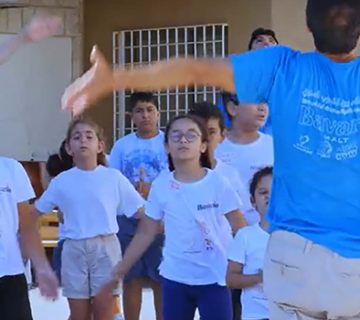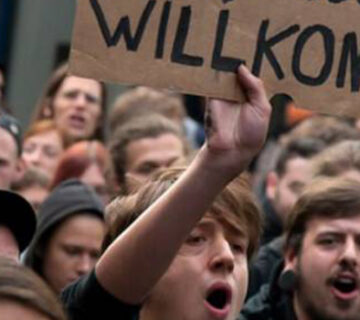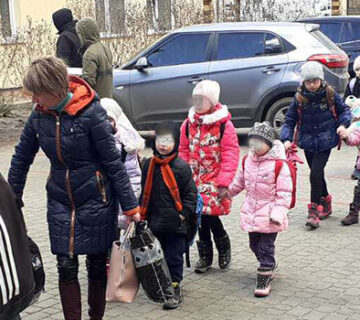
Today, after its reunification in 1990, with its 81 million in habitants, Germany is the most populous country of the European Union of which it was one of the founder members. Its GNP makes it one of the richest countries in the world and, in the wake of the Second World, it has developed a solid Parliamentary democracy.
Both its dramatic experience of nazi dictatorship and its forty-year East-West division have deeply effected its people. Since Germany is also one of the lands of the Reformation, with a strong presence of Protestant Churches together with the Roman Catholic Church and Orthodox Churches, Germans have lived the pain of the division of the Churches. They are now discovering the richness of diversity and see the unfolding of a more effective witness to Christian life.
There are about 30,000 people who say they are friends of the Focolare Movement in Germany. About 5000 thousand of them, adults, young people and children, meet regularly either according to age or vocation or linked to common interests or specific topics. The first contacts with Germany go back to 1955. A little later, the Catholic bishop of Meißen, Otto Spülbeck, and Cardinal Alfred Bengsch of Berlin asked the founder of the Focolare, Chiara Lubich, to send focolarini to East Germany. The lack of doctors in the DDR make it easier for foreigners with a medical background to enter the country and so 8 focolarini who were doctors, German and Italian, went to Berlin and Leipzig. With them came Natalia Dallapiccola, a focolarina who had been with Chiara Lubich from the beginning of the Focolare in Trent, Northern Italy. From Germany Focolare spirituality spread also in other countries in Eastern Europe, especially Poland, Czechoslovakia and Hungary.
In a country so much involved with the beginnings of the Reformation, it is natural for ecumenical dialogue to be of primary importance for the Focolare.
A characteristic of the Focolare in Germany is that right from the start there were meetings with Evangelical Christians (the bruderschäfte [fraternities], the nuns of Mary from Darmstadt). In the 60s there were numerous meetings with important people and members of various Churches. From that time to today, Christians of different Churches have found their place in different groups within the Focolare. They find there an inspiration for their lives, and an encouragement to work for and to deepen unity among Christians.
 On the basis of these relationships between Christians of different Churches, common initiatives have taken place and there has been real development at a community level. Among these there is the Centre for Ecumenical Life at Ottmaring, near Augsburg. Its founders and leaders are members of the Evangelical Lutheran Brethren of the Common Life and Focolare members. Ottmaring has become one the Focolare’s ‘little towns’ with a profoundly ecumenical character. It has had the blessing of both Lutheran and Catholic authorities and it now has 120 people permanently committed to it and linked to it in a variety of ways.
On the basis of these relationships between Christians of different Churches, common initiatives have taken place and there has been real development at a community level. Among these there is the Centre for Ecumenical Life at Ottmaring, near Augsburg. Its founders and leaders are members of the Evangelical Lutheran Brethren of the Common Life and Focolare members. Ottmaring has become one the Focolare’s ‘little towns’ with a profoundly ecumenical character. It has had the blessing of both Lutheran and Catholic authorities and it now has 120 people permanently committed to it and linked to it in a variety of ways.
In the summer months, European young people take the opportunity to share for a time in the life of the little town. In 1999 the ecumenical experience of Ottmaring led to the initiative ‘Together for Europe’, a network of movements and Christian communities that includes Evangelicals, Catholics, Orthodox, Anglicans and Free Church members.
There are other meeting centres of the Focolare in Germany in Solingen and Zwochau.
A further point of commitment for Focolare members is dialogue with believers of different religions and with people of no religious faith. Shared efforts for peace, justice and in social initiatives have provided common platforms for this dialogue.
In the history of the Focolare other people, together with Chiara Lubich, have given an important contribution to the Movement’s development. One of these was the German bishop of Aachen, Klaus Hemmerle (1929-1994).
He gave a decisive boost for the development of a theology developed from Chiara Lubich’s charism and he regularly took part in meetings of the interdisciplinary research centre called the ‘Abba School’. He also gave life to an ongoing ecumenical spiritual development involving bishops of different nationalities and Churches who take their inspiration from the spirituality of unity.
On the tenth anniversary of Klaus Hemmerle’s death, the Focolare in Germany set up a prize for persons who display a spirit similar to his. It is given every two years to those who have been ‘bridge-builders’ in dialogue among the Churches, among religions and among people of other kinds of convictions. The first to receive the prize was Patriarch Bartholomew I.


 Italiano
Italiano Español
Español Français
Français Português
Português


